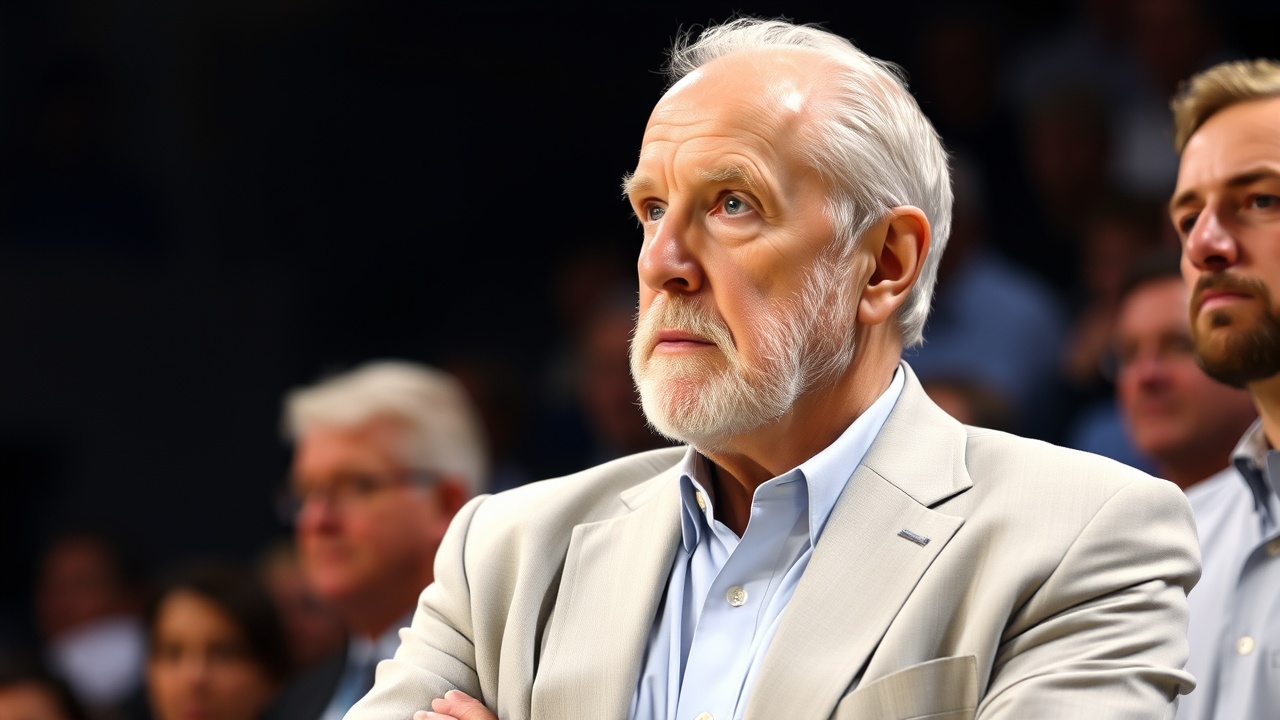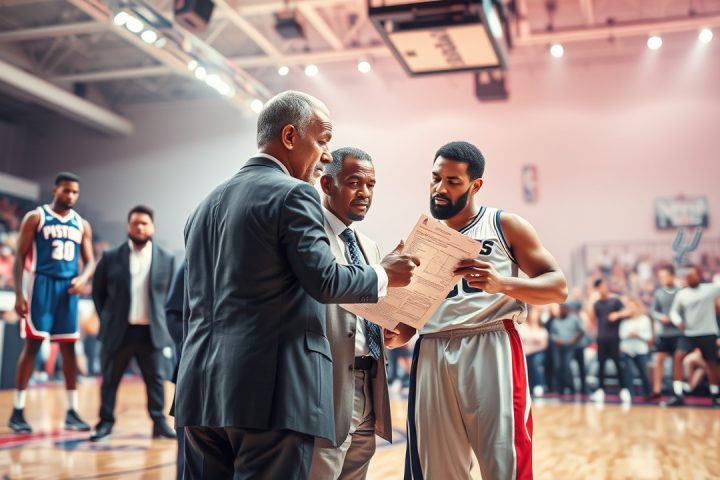The Uncertainty of Roster Cuts
In the bustling atmosphere of Miami, Keith Langford found himself engulfed in uncertainty as he returned to his hotel room, grappling with the approaching reality of roster cuts during the San Antonio Spurs’ final preseason game against the Miami Heat back in 2007. With the pressure mounting, Langford suspected that his fate lay in the balance between him and fellow teammate Darius Washington Jr., each vying for a coveted spot on the team.
A Surprising Exchange
That night took a surprising turn when Langford opened his hotel door to find none other than head coach Gregg Popovich waiting for him. Unlike the standard procedure of a team manager delivering bad news, Popovich’s presence set Langford’s nerves aflame.
“Automatically, the butterflies are going,” Langford recalled, bracing himself for an emotional exchange.
As they sat down, Popovich began by expressing his genuine belief in Langford’s potential.
“I really think you’re a good player, Keith, and you have a chance to be a high-level player, I see it in you,” he asserted, acknowledging the struggles that led to the hard decision.
As he spoke, his voice quivered with emotion, revealing a side of coaching that often remains hidden: the investment in his players’ growth.
“I really felt like you took what I was saying to you and really tried to do it,” Popovich continued, recognizing Langford’s efforts, even while ultimately deciding that he needed to make room for Washington.
The conclusion of their talk was no less poignant as the two embraced, solidifying a moment that would linger in Langford’s memory for nearly two decades. He later reflected,
“He was the only one that made me feel like I was a part of something where I was being paid attention to.”
The Legacy of Gregg Popovich
Long renowned for his exceptional coaching prowess, Popovich recently stepped down from his role after an illustrious career spanning decades. As a mentor, he exhibited an extraordinary ability to foster a culture of accountability and selflessness while providing honest feedback with empathy. This combination solidified his reputation as a leader capable of holding difficult conversations—an essential skill in every successful organization.
In professional sports, such candid discussions are inevitable, with players frequently faced with scrutiny of their performance, often publicly in front of their peers. Popovich’s approach emphasized the importance of clear, honest communication. Citing the principles of accountability, Popovich stated,
“For us, the thing that works best is total, brutal, between-the-eyes honesty.”
This philosophy invites deeper inquiry into the dynamics of communication and accountability in various settings.
The Importance of Honest Communication
Researchers Dr. Taya Cohen and Dr. Emma Levine sought to investigate the balance between kindness and honesty in conversations. They devised a study featuring three groups of participants, assigning them to practice kindness, mindfulness, or honesty in their daily interactions over three days. Despite initial concerns about negative outcomes associated with being straightforward, the feedback two weeks later indicated the contrary—participants found honesty liberating and strengthening for their relationships.
Cohen explained that many people misinterpret kindness as avoidance of difficult truths, failing to recognize that facing challenges can ultimately be beneficial.
“People can handle difficult news often better than we think they can,” she stated, emphasizing the necessity of long-term thinking in difficult conversations.
Effective communication involves a few key strategies, according to Cohen: delivering specific feedback, explaining the impact of specific behaviors, ensuring authentic respect is communicated, and identifying a collaborative path forward.
Lessons from Coaches and Players
Former Seattle Seahawks linebacker K.J. Wright emphasizes implementing these principles in his coaching, recalling lessons from his mother’s wisdom about needing to be liked. Wright has seen how crucial it is to face uncomfortable conversations head-on, having experienced both the uncertainty of free agency and the clarity of straightforward dialogue from trusted leaders, like his former coach Pete Carroll, who offered honest assessments of the situation.
Similarly, Josh Johnson, a seasoned NFL quarterback with a remarkable 14-team career, echoed the importance of clear communication. Knowing the landscape before tough conversations helped him to manage expectations effectively.
Conclusion: Tough Love and Growth
Cohen succinctly summarizes the relationship between discomfort and growth:
“Short-term pain, long-term gain.”
Her insights suggest that many shy away from direct communication out of fear of causing emotional distress, but the implications often extend beyond temporary discomfort—ultimately enriching relationships and paving the way for improvement.
In Langford’s case, the poignant moment with Popovich didn’t conclude with his cut from the team. A follow-up call from the Spurs prompted a second, more constructive conversation, in which Popovich re-engaged Langford and provided clarity about the areas requiring improvement. The sincerity of that dialogue left a lasting impression, emphasizing the impact of transparency in leadership.
“He just had a way,” Langford remarked, reinforcing how openness can foster a profound connection between coaches and players.
This blend of tough love and genuine mentorship has become a hallmark of Popovich’s legacy, showcasing how the ability to navigate tough conversations can not only build stronger relationships but also drive individuals toward success within their respective journeys.




